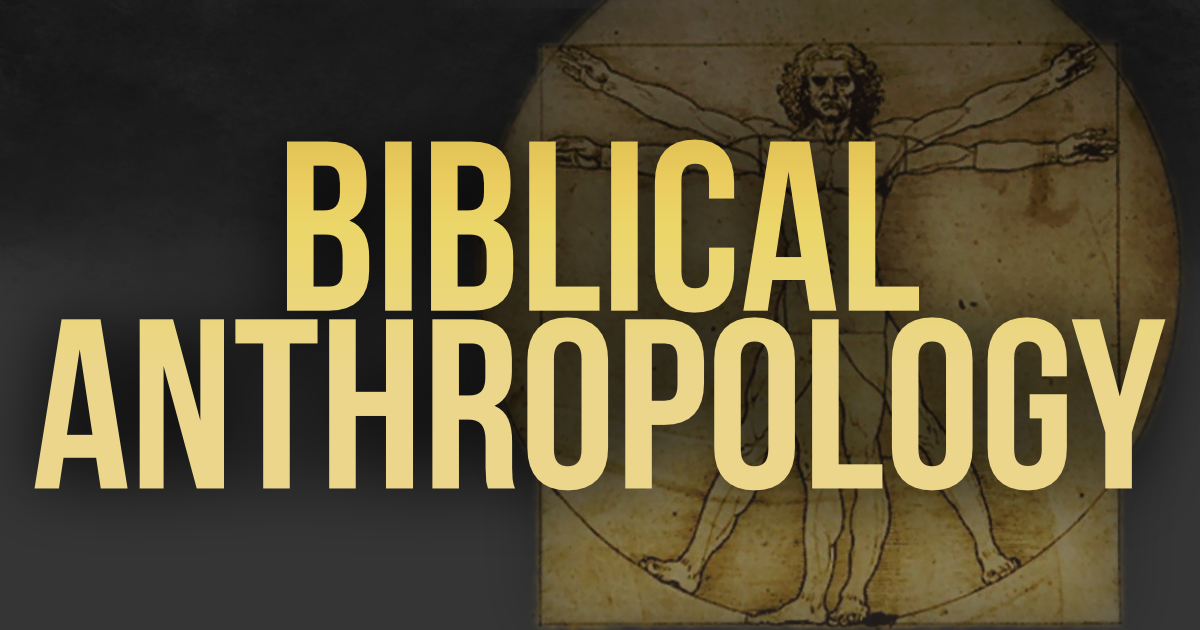Download a free lecture on this subject here.
 Anthropology comes from the Greek roots anthropos meaning “human” and logos meaning the “study of.” Thus Anthropology is the study of humans. The Bible has a unique anthropology. Before we consider the biblical view, consider alternate views of humanity.
Anthropology comes from the Greek roots anthropos meaning “human” and logos meaning the “study of.” Thus Anthropology is the study of humans. The Bible has a unique anthropology. Before we consider the biblical view, consider alternate views of humanity.
1. Humans are basically good
This view believes that humans are essentially good, but they merely keep getting themselves into trouble. The biblical view states that humans are inherently sinful, which is strikingly different from this view. It also has a blind optimism that ignores human history, the news, and common experience. It refuses to come to terms with the sinfulness of humans. This view always leads to despair as we continue to trust people that are inherently sinful, as though they weren’t.
2. Humans are basically evil
This view is cynical and suspicious of hope or change in humans, because we have such an awful track record. The biblical view believes that humans are evil, but we have concrete reasons to have hope, because of God’s redemptive work of the Cross. Under this view, we would have an inability to draw close to others, fending for ourselves and building barriers to others.
3. Humans are a blank slate (Tabula Rasa)
Under this view, we’re born into this world morally neutral and our environment and experiences shape whether we turn out good or bad. The biblical view is that humans are influenced and affected by their environment (Ex. 20:5), but they are never determined by it (Josh. 24:15). The problem with this view is that we can never really hold anyone responsible for anything. We nurture people to death, enabling them.
4. Humans are not important
Eastern religious systems often hold to this view of humans. Human suffering is simply maya or “illusion.” Our personhood is an illusion. If only we transcend our personhood, would we be able to realize that these things are illusory. By contrast, the biblical view is that good and evil are very real, and we are in a truly fallen state—desperately in need of redemption. Practically, this view leads to a cold detachment from the problems and suffering of others. It stops our ability to lead social reform.
5. Humans are relatively evolved primates
This is a naturalistic view of humans: We are modified monkeys or meat machines. Under this view, we are really just molecules in motion, and it is difficult to form a foundation for morality or human responsibility. Emil Brunner developed atavism from this view, where our human behaviors are really based on the primal urges of our ancestors. Thus we shouldn’t be surprised to see our animalistic tendencies showing up, because we’re from our primate ancestors after all.
Conclusion
As we can see, the study of biblical anthropology is not an esoteric discussion. Instead, it lies at the heart of practical theology. Depending on our view of who or what humans are, this will greatly affect how we serve God and others (e.g. counseling, building friendships, leadership, etc.). Consider a number of areas that biblical anthropology can affect:
Parenting: Humanistic parenting assumes that person is born perfect, and our role (as parents) is to not mess them up too much. Solomon writes, “Foolishness is bound up in the heart of a child; the rod of discipline will remove it far from him” (Prov. 22:15). Based on the biblical view of human nature, we need to discipline our kids. Even the most discerning parents are sometimes in denial that their child would ever be caught in serious sin.
The Need for Authority: Biblically, all authority belongs to God, but it is necessary to have delegated authority in a fallen world. Anarchy is the worst state of affairs. Even bad authorities are better than no authorities, according to Paul (Rom. 13). Moreover, as believers, we recognize that no authorities are completely trustworthy either, because people are fallen.
Sanctification: Spiritual growth is going to be a long, extensive project if total depravity is true. Spiritual short-cuts will not work.
Psychology: Our mental and emotional makeup is not just the result of culture or environment. Without standard definitions of what is good or evil, what are we counseling people toward?
Discernment: Good discernment comes from good anthropology. We need to face the fact that people will lie, self-justify, shift blame, and seek their own glory (Jn. 2:24-25).
This isn’t an exhaustive list, but it drives home the point that anthropology is integral to effective Christian service.
The Mind and the Brain: Is Freewill an Illusion?
Further Reading
Grudem, Wayne. Systematic Theology. Grand Rapids, MI. Zondervan Publishing House. 1994. See “Part 3: The Doctrine of Man.”
Erickson, Millard. Christian Theology (2nd Edition). Grand Rapids, MI. Baker Academic. 1998. See “Part 5: Humanity.”
